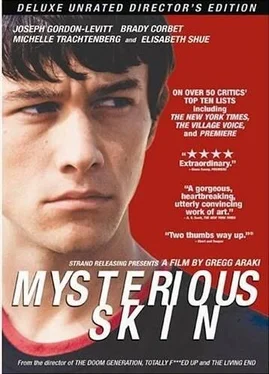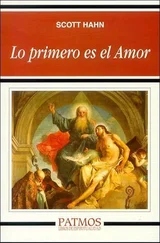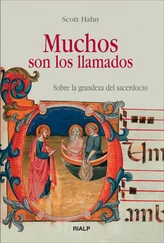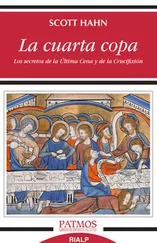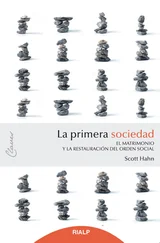As usual, Deborah clobbered me. She announced her verdict in a voice that echoed over Little River’s homes: “Colonel Mustard, in the study, with the wrench.”
On the other side of town, the lofty spotlights that circled the ball park flickered on. Little River’s adult softball teams-“rinky-dinks” my father called them, and he refused to watch such amateurs-competed there three nights a week. It seemed as though half the population of Kansas belonged to some sort of ball team that summer. Between our turns at Clue, Deborah and I grabbed the binoculars and focused on the field. We watched the players’ bodies as they jogged through the green quarter-circle of the outfield. We kept track of the score by zooming in on the electronic scoreboard at the left-field fence.
A cottonwood tree towered beside our house. The wind blew seeds loose from its inferno of branches as we solved our murders. By summer’s core, the green pods were splitting, and white cotton tufts butterflied through the air to fall on the roof, the game board, our heads. We knelt beside the chair and waited for our mother to call us to dinner. Dusk swept its inks across the sky, and she finally stuck her head from the kitchen window and hollered, “Potatoes!”
“We get to eat without him,” Deborah said. We left the roof, ran into the kitchen, and began to eat, the potato soup our conspiracy. My mother had thickened the soup with crumbled chunks of homemade zwieback, and as I spooned them into my mouth I stared at my father’s empty chair. It loomed larger than the other three. I imagined he had swallowed an invisibility pill; we couldn’t see him, but we could feel his presence.
That night, I did something I’d never done before: I wet the bed. The next morning, I rose with my skin drenched, partly in sweat from the summer heat, and partly from the urine that soaked the sheet. My father stepped into the room, spiced from his morning cologne, decked out in the corduroy suit he wore to the office. I felt the muscles cramping in my chest. “You’re nearly nine goddamn years old,” he yelled. “And Pampers doesn’t make diapers in your size.” My mother blamed it on confused hormones, allergies from a new detergent, even something as simple as downing too much potato soup or too many glasses of water.
Not long after that, I began fainting without warning. “The blackouts,” Deborah and I called them. They would come unpredictably, at erratic intervals, over the rest of my childhood and adolescence-as often as once a week, as few as once a year. My eyes would roll into my head, and I would drop like a shot deer. I felt emptied, as though my stomach and lungs and heart had been sucked from my body’s midsection. When the school year arrived again, my classmates believed I faked the blackouts. They invented nicknames to refer to those times my senses clicked off and I fell to the classroom floor. Nutcase, they called me. Fake-fuck. Liar, Liar, Pants on Fire.
That summer, the summer of ’81, the blackouts were both frequent and severe. My mother took me to Dr. Kaufman, the most expensive and revered of Little River’s trio of doctors. His office sat on the top floor of an historic hotel, our town’s most famous building and, at five stories, its tallest. His waiting room smelled like disinfectant and bandages; the smell made me woozy. “The doctor will be ready shortly,” the receptionist told my mother. I lounged beside a potted fern, skimmed through women’s magazines, and silently prayed I didn’t have a disease.
Dr. Kaufman wore a bow tie, a tweed cap, and a white robe. He ushered me into his office and propped me on his table. I held my breath when the stethoscope’s tip grazed my chest. “Like an ice cube, isn’t it?” he said.
Dr. Kaufman questioned me about the fainting spells, and he furnished my mother with a checklist of possible food allergies. “Do you honestly think his problems stem from food?” my mother asked. She guessed that my first “spell” must have happened during that final Little League game. “Someone could have knocked Brian with a bat,” she told the doctor. “A mild concussion, maybe?”
The doctor nodded. Perhaps that explained why I didn’t remember who had driven me home or what had happened during that five-hour void. “Call me if something like this happens again,” he said. When he touched the back of my neck, his fingers felt chillier than the stethoscope.
Two things defined my father’s life: food and sports. Since I had disappointed him by quitting baseball, I decided to share in his passion for eating. I fixed hot dogs, bowls of popcorn, and lemon-lime gelatin, grapes buoyed beneath the molded surface like infant jellyfish. I climbed the ladder to the roof and served him. We ate together in silence.
One afternoon, as usual, the paperboy dropped the Hutchinson News on our doorstep. My father stopped my mother from slicing potatoes. “We’ll eat out tonight,” he said. He pointed to a quarter-page feature in the paper where an eaterie called McGillicuddy’s advertised four hamburgers for a dollar. My father made enough money to treat us to dinner at Hutchinson ’s priciest restaurant, but he never did.
McGillicuddy’s walls displayed photographs of fifties movie stars. The salad bar was built into the interior of a genuine fifties convertible, its dark purplish red the identical color of the sliced beets that filled one of the salad bowls. We ordered our burgers and stuffed ourselves. When my father looked at me, I pretended to be enjoying the most sumptuous feast ever prepared. He smiled as he chewed, nearly intoxicated by good food at an inexpensive price. Our waitress sported penciled-on eyebrows, drawn into her forehead’s center. Her name tag said MARJEAN and I’M HERE TO MAKE YOUR MEAL AN EXPERIENCE.
Deborah couldn’t finish her burger, so my father wolfed it down. Outside the restaurant, a fire from Hutchinson ’s dump lazily corkscrewed its smoke in the distance. In the parking lot, a young couple danced the two-step. The woman’s dress sashayed around their ankles. My mother watched them, the edge of her water glass poised against her bottom lip.
On the drive home, my father hummed along to AM radio. We passed immense stretches of milo and corn, meadows overgrown with sunflowers, and wheat fields where combines rested like sentries waiting for the upcoming harvest. We passed bankrupt gas stations and fruit stands selling tomatoes, cucumbers, and rhubarb stalks. Deborah and I stared through our respective windows, barriered from their world by the dark vinyl seats.
Midway between Hutchinson and Little River, my father braked and muttered, “Shit almighty.” A huge turtle lumbered along the stretch of asphalt ahead of us, painstakingly making its way toward a pond at the edge of a field where alfalfa plants stretched their purple blooms. The turtle was a snapper, its legs as thick as sausages. My father bounded from the car. He opened the trunk and pulled out a gunnysack filled with tools. From the backseat, Deborah and I heard the clang as he dumped hammers and screwdrivers and wrenches into the trunk.
My mother got out to help. The angle of her body displayed her discontent as she walked toward him, hands on her hips. She bent down. The turtle hissed at them, its ancient jaws clapping shut. My father stepped on its marbled back, slid the gunnysack’s mouth beneath its body, and booted it in. “Meat,” he said. He carried the sack to the trunk, arms held stiff in front of him.
Deborah nudged me and rolled her eyes. She started to say something, but my father poked his head into our backseat window. “Tomorrow night, your mother will make turtle steaks.”
I skipped upstairs early that night, because I feared what might happen. I busied myself by scrubbing an old toothbrush over a lemon-colored urine stain on last night’s bedsheet. As I was pulling pajamas from my dresser, my father tapped his usual one-two-three on my bedroom door, just as I’d expected. “Brian,” he said, “I need help in the backyard.”
Читать дальше
